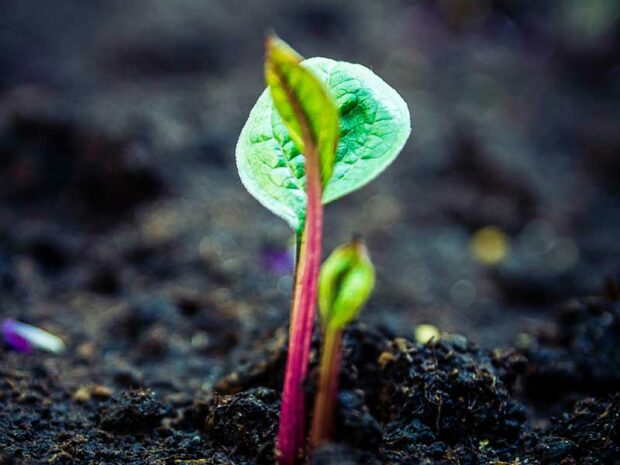Building and managing a vegetable garden can be much simpler if we change our behavior considerably. In the “old days” we rototilled or “double dug” our patch every spring. We took soil tests to help us determine how much and what kind of fertilizer we should use each year. Watering was a real concern in the heat of the summer. We seldom caught up with the weeds. We had to always keep our eye out for any insect problem that might appear. We had to learn about disease for all the different vegetables we were growing. Some could be fixed and others required removing the plant from the garden.
Does this sound pretty much the way you tend your vegetable garden? Don’t feel bad. Many Americans grow vegetables with all those concerns just like Grandmother did.
Vegetable gardening can be much simpler and easier to manage if we would begin to focus most of our attention on the condition of the soil in which we grow our plants. I mean really focus our attention. Soil health in the garden has typically gotten the short shrift. Pay more attention to your soil’s health and a whole lot of onerous gardening tasks will disappear. We now have to start paying attention to the needs of the “soil food web” for a change.
Do an Internet search on “soil food web” and you will get a lot of good basic information discussing this incredibly complex network of soil critters, from earthworms down to the smallest bacteria. There are millions of different micro-pals in a healthy soil. This network includes bacteria, fungi, protozoa, beneficial nematodes, beneficial mites, and many more.
I suspect most vegetable gardeners in Michigan have soil that is in bad condition—a low population of the soil food web. For example, if you rototill every year, don’t use raised beds, don’t use mulch all year round, and use quick-acting nitrogen fertilizer, I can assure you that the soil in which you are trying to grow food is essentially dead.

Here are basic steps that lead to a quality of vegetables that you could never before imagine:
Use raised beds
Plants grow better in permanent raised beds that are seldom walked on. The permanent paths in between get compacted enough to discourage weeds. Raised beds warm up earlier, drain better, and are easier to work in.
Use full-time mulch
Mulch is thought to be valuable because it will keep down weeds, slow down moisture evaporation, and cool the soil in the summer. Those are good things, but the real reason for using 2 to 3 inches of organic mulch 365 days a year is that it supplies critical food to the earthworms and the other billions of creatures that make up a healthy soil food web. No mulch, no food. No food, no soil food web.
Stop rototilling
After using organic mulch such as straw for 2 or 3 years, you can stop tilling the soil in the spring. The soil food web takes care of the tilling job.
After using these steps in your vegetable garden for 2 to 3 years, you will be amazed. You will need only half the fertilizer and half the water your neighbors need to use. Insect and disease problems will decrease. You will save the time you spent rototilling each spring as well as the time and stress spent fighting pest insects and disease. About the only problem this system creates is that you will never be able to use all the harvest yourself!
Jeff Ball has authored eight books on gardening, vegetables, and lawn care.
ELSEWHERE: Vegetable Gardening
RELATED: Soil Basics 101: From pH to microbes, learn about the lifeblood for your plants



Leave a Reply